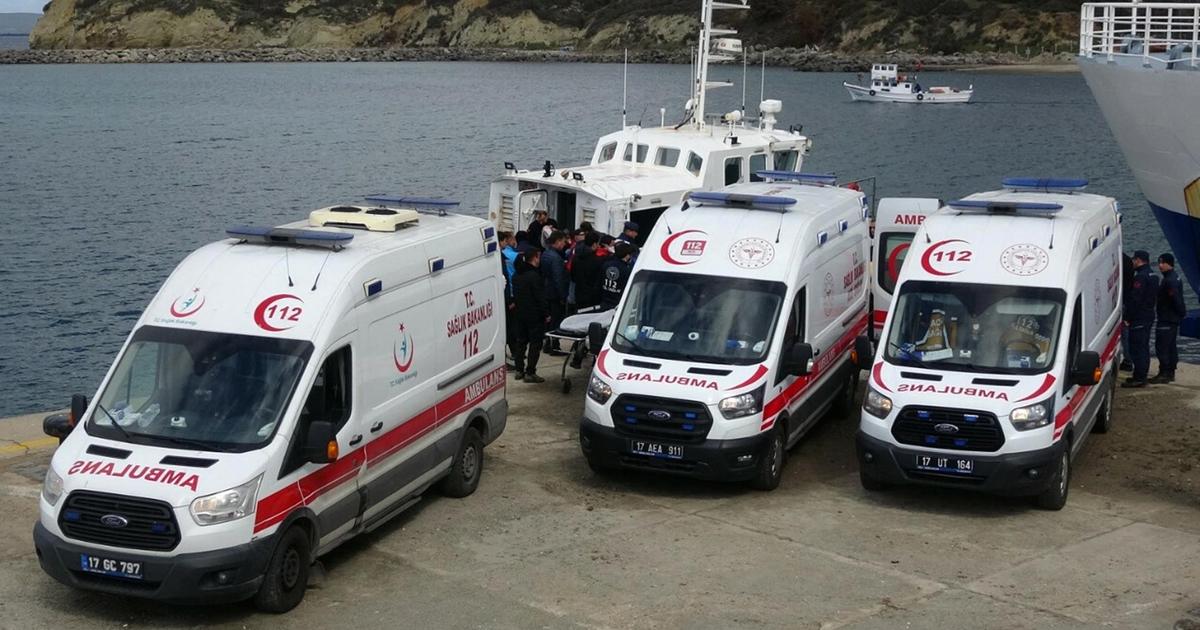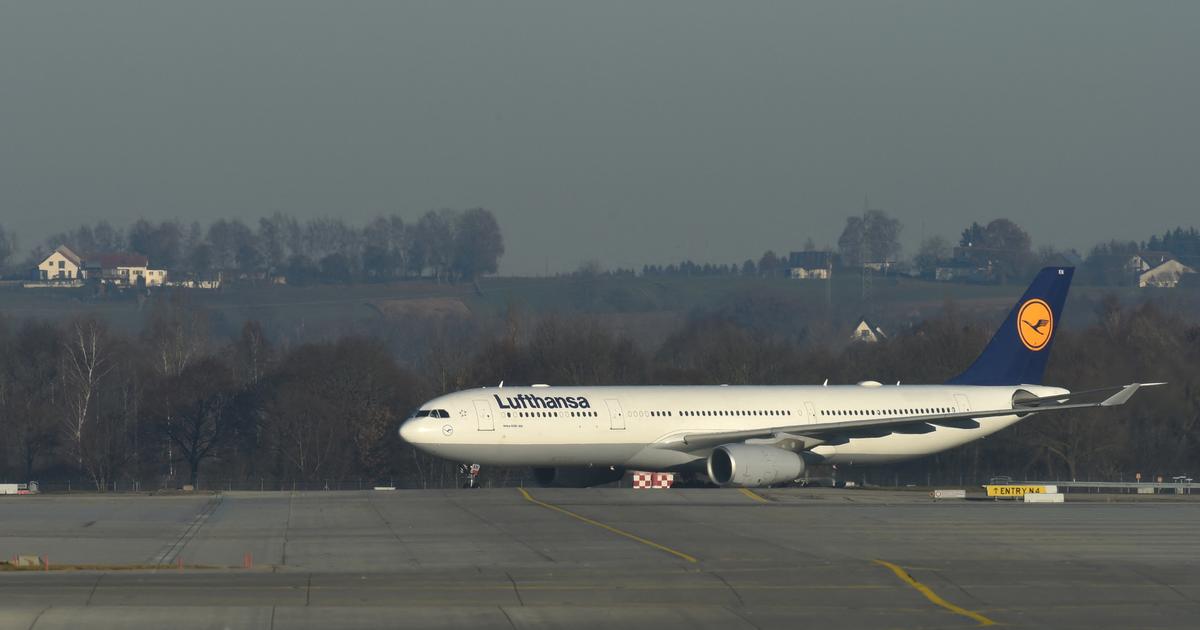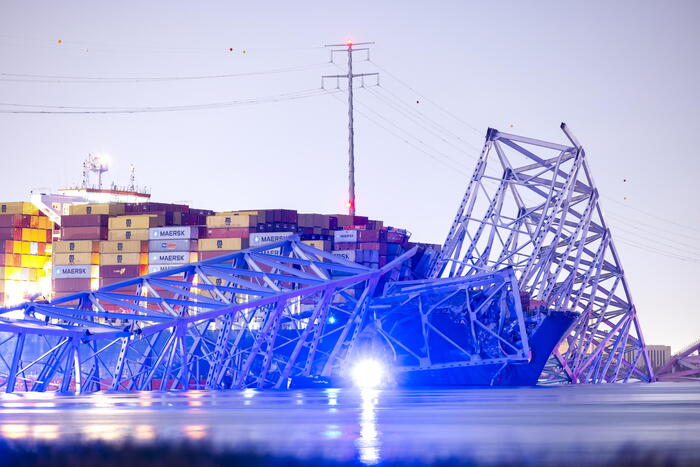Exactly at midnight, the ship with the identification TCSG 310 leaves from its base in Dikili, a city in northwestern Turkey. The 33 meter long speedboat of the Turkish Coast Guard is fully loaded with state-of-the-art surveillance technology.
Over the next eight hours, the TCSG 310 and its 17-member crew will cross the Aegean Sea at a speed of around 45 knots (around 90 km / h). Back and forth it goes along the Turkish coast, not far from the Greek island Lesbos.
This night, the crew has two instructions: to identify boats with asylum seekers and stop them before they reach Greek waters. And she should, if necessary, act as a maritime rescuer. On this mild October night, the crew must do both. The TCSG 310 is part of a fleet with which Greece, Turkey and the European Union in the Aegean Sea want to prevent migrants from entering EU territory.
Fear of a new refugee crisis
Hundreds of members of the Turkish and Greek Coast Guard and the European border agency Frontex are patrolling the straits day and night - equipped with speedboats, helicopters, airplanes, drones, thermal imaging cameras and radars.
In Turkish waters alone, there are 22 boats per day, accompanied by three helicopters and airplanes. Five of the ships are to block the migrants the way to Lesbos. Because on this island comes the majority of asylum seekers who want to reach Europe by sea. Greece and Frontex have announced they will be providing more boats, more forces and more cameras, Turkish Coast Guard officials say they are now pushing double and triple shifts.
Video: The Turkish Coast Guard in action
What all the effort can not prevent: In the Greek islands, as many migrants land again as last in March 2016, when the EU agreed with Turkey on the Refugee Pact: Ankara should stop the migration movements in the Aegean and received in return Billions from Brussels. But this year alone, more than 42,000 asylum seekers have reached Greece by sea.
But the number of those who have been prevented from crossing has also risen: by October, the Turkish authorities had prevented a total of 334,000 migrants from reaching Greece - 63 percent more than last year. 44,000 of them were stopped at sea, more than twice as many as in 2018.
In addition, the living conditions on the "hotspot islands", where migrants have to wait for their asylum decision, are dramatic. There are riots. Fire break out. People die. Greece and the EU are alarmed: the new, conservative government in Athens has promised to tackle the migration problem, but Europe has long been dreading another refugee crisis triggered by the Turkish military offensive in northern Syria.
Away from this, Europe accuses Turkey of not doing enough to fulfill the Refugee Pact. Greek politicians even suspect that Ankara deliberately let go of reins in order to squeeze concessions out of Europe in the Syrian conflict.
You can not completely block the strait
Such political intrigues do not seem to affect the crew of the TCSG 310. They have their orders, and they are simple. The border guards are watching the flashing green dots on the radar, each one representing a boat in the area. If one of them becomes conspicuous by its size or speed, Captain Hasan Aldemir declares his crew has a mission to intercept it. Or, better yet, to prevent the migrants from getting on board the tugboats.
At the end of this night, the Turkish Coast Guard, together with the gendarmerie, will have stopped 14 such boats, with 535 passengers. Three groups of migrants did not make it to the Aegean Sea. "We have prevented more than 20,000 border crossings this year alone," says Aldemir.
The captain knows that you can not completely block the strait. "It's very hard to keep track of the entire coast at any point, sometimes our ship is 30 minutes away, but the migrants only need ten to reach one of the Greek islands."
What is wrong with the widespread allegation of the Greeks that the Turkish Coast Guard sometimes ignores their references to approaching boats? Aldemir gets his cell phone out of his pocket in reply: An endless stream of English messages often appear on the screen, often beginning with "Hello, Sir," followed by the exchange of alerts and coordinates.
However, few leaders in Greece, Turkey and the EU seem concerned about whether their strategy is not only ineffective - but whether upgrading the Aegean to a fortress with more and more resources and resources also does not increase the likelihood of people dying ,
Risky passages in complete darkness
Because the massive defensive measures could lead asylum seekers to take even greater risks to reach the EU. This year, 66 people have already died in the Strait - since 2014, there are nearly 2,000 casualties.
The youngest victim is a small child. It was recovered dead on Wednesday after a patrol boat from the Greek Coast Guard collided with a barge carrying dozens of migrants from Turkey. According to the Coast Guard, the collision occurred in complete darkness: "They try to make the crossing undetected, and the boats are usually completely overloaded," explains a Greek official. "Sometimes it's very difficult to locate these boats at all, even for ships equipped with radar."
Sergen Sezgin / Anadolu Agency / picture alliance
Now safe: A toddler is saved
How risky the passage can be, becomes clear towards the end of the nocturnal employment of the TCSG 310. At 5:49, the crew receives an SOS signal: a boat full of migrants has been placed in distress and drifting in the middle of the sea, about an hour from the coast of Lesbos. At 6:22 you can see the small rubber boat, overloaded with 42 people, including many children. It gives the impression that it could cause the slightest wave motion to capsize.
This night, the waters are calm, the wind blows only weakly. But even under these good conditions, the Aegean is a fearsome, dark sea. Almost all of the asylum seekers on the rubber boat come from Syria, a woman from Iran. An eight-year-old Syrian girl, who has ventured with his parents and four siblings, carrying empty plastic bottles around his neck, apparently they are to serve as a life jacket.
The shipwrecked will be taken aboard a smaller Turkish Coast Guard ship without further ado, which will return them to shore. Away from their desired destination Europe, back to Turkey. Your dream is over for now. But at least they are still alive.















